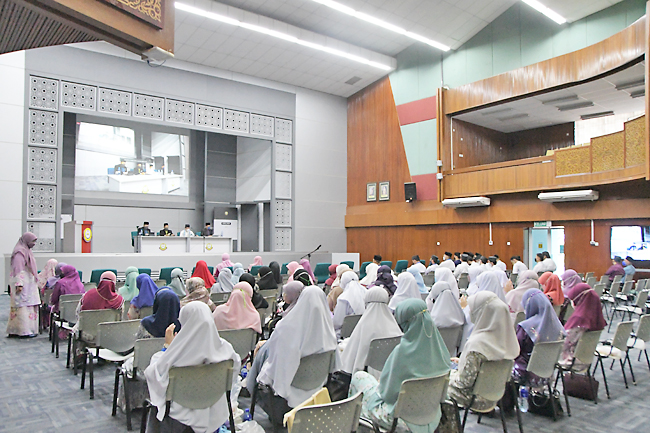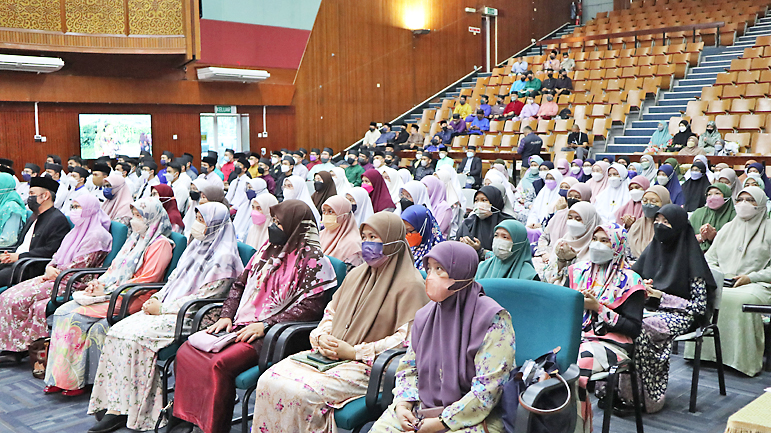Rokiah Mahmud
Last year, the Faculty of Usuluddin at the Religious Teacher’s College of Seri Begawan (KUPU SB) introduced a ‘Dakwah and Contemporary Issues’ programme for students to earn a Minor in Al-Quran and Contempory Issues or a Minor in Al-Hadith and Contemporary Issues.
The programme looks to integrate pure Islamic religious knowledge with modern day concerns, such as education, environment, halal food, entrepreneurship and science.
Behind the initiative in introducing the programme was a concern that Usuluddin on its own would fall behind in relevance in the modern era.
“There are concerns among students that if they take pure Islamic studies, their careers would be limited to either becoming teachers or religious officials, thus making it more difficult to find employment in various sectors or industries,” said Rae’s of KUPU SB Dr Haji Adanan bin Haji Basar in a keynote address during a two-day seminar focussing on Multaqa Usuluddin.
The seminar which took place from May 24-25 drew attention to the importance of Usuluddin, and highlighted the concern that if scholars in the field do not initiate improvements in its teaching, it would not be taken up by the younger generation.



Experts called for a proactivity in adopting a new methodology in line with current context that could attract the Islamic community to pursue the subject. New initiatives need to be implemented such as incorporation of modern disciplines, including counselling, social science and psychology.
Dr Haji Adanan said the Usuluddin curriculum need re-evaluating so the subject’s goals can align students to the Sultanate’s Malay Islamic Monarchy (MIB) philosophy.
He said the Usuluddin syllabus needs to be re-drafted for a more holistic development of students.
“The teaching of the subject also needs to be varied by incorporating multimedia and social media,” he added, while calling on a more streamline approach to assessment and student engagement.
“There are several universities already in the process of merging the Usuluddin field with other studies so that attract students and provide added value, especially in terms of marketability,” he said.
The Ra’es said Usuluddin has to be continuously developed and evolved to ensure that the quality of Usuluddin studies is in line with Brunei Vision 2035 for the country’s population to be educated, highly skilled and successful.
“Towards this, the Faculty of Usuluddin at KUPU SB has carried out efforts towards strengthening and empowering its fields of study by implementing and planning new courses with the means to develop the knowledge of Usuluddin on par with current context,” he said.
The ra’es shared that students’ performance in for ‘A’ Level Usuluddin have improved in recent years.
In 2019, 63 out of 150 students (42 per cent) passed the subject while in 2020, 75 out of 152 (49.34 per cent) had passed, and in 2021, 77 out of 85 (90.59 per cent) students passed, said Dr Haji Adanan.
Meanwhile, representative for the Chairman of the Multaqa Usuluddin Seminar Dr Norashimah binti Haji Omar said Usuluddin scholars need to come up with more practical methods to assist lecturers and students, so as to facilitate effective teaching and learning.




